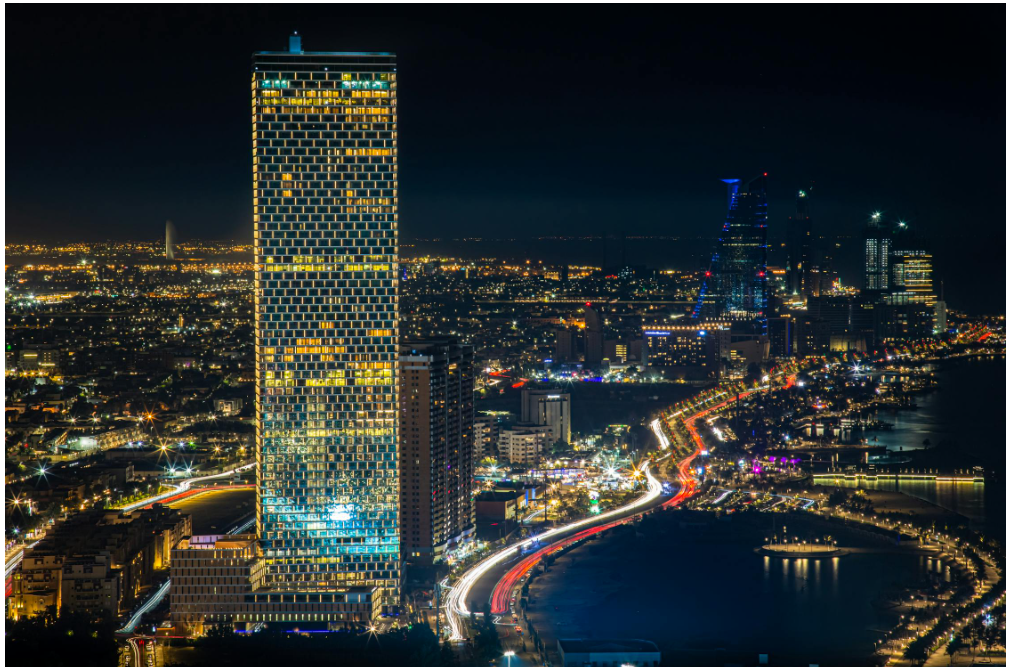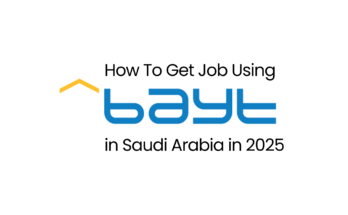Tips for interviews in Saudi Arabia
Finding a job in Saudi Arabia requires extensive interview preparation, cultural awareness, and understanding of Saudi working customs. Professionalism, respect for hierarchy, and conformity to cultural standards are commonly emphasized in Saudi businesses. Here are some excellent tips to help you navigate a Saudi job interview and make a good impression.

Understanding Saudi workplace culture
Saudi work culture is different, valuing respect, professionalism, and tradition. Employees must display a high level of respect for seniority and authority, which are deeply established in Saudi society. Maintaining a professional demeanor and adapting to the formal atmosphere will significantly benefit your candidacy.
Cultural and religious values have a considerable influence on Saudi business practices. Employees, for example, routinely attend prayer sessions during the day, necessitating changes to work procedures. Being aware of and sensitive to these concepts displays your adaptability and readiness to integrate into the local workplace culture.
Research on employers and industries
Saudi firms value applicants who have researched their company and the Saudi Arabian industry dynamics. Begin by researching the company’s history, including recent events, accomplishments, and position in the local market. Saudi Arabia’s Vision 2030, for example, aims to diversify the economy; as a result, many companies are growing into non-oil industries such as technology, tourism, and finance. How these projects relate to your skills and experiences may help you stand out as a candidate.
Understanding industry-specific trends displays a genuine interest in the topic. Check to see if the company has any notable partnerships with abroad partners, as this demonstrates the organization’s global reach.
Preparing the required documents.
Documentation is necessary for interviews in Saudi Arabia. Keep copies of all important documents, including your CV, identity, and any required certifications. Employers in Saudi Arabia routinely request certification of academic degrees and professional qualifications. Having these confirmed documents on hand speeds up the hiring process by displaying that you are well-organized and prepared.
If you’ve already worked in Saudi Arabia, bring your passport and any previous work permission paperwork with you. Presenting a well-organized portfolio with all required paperwork creates a professional image and shows that you value the employer’s time.
Dress codes and appearance advice.
Saudi Arabia maintains a conservative dress code, especially in the corporate sector. Men are normally encouraged to wear a formal suit, while women should dress conservatively and professionally. Expat women are not legally required to wear an abaya (a traditional black cloak), but modesty is highly encouraged.
Men should keep their attire ironed, tidy, and professional. Grooming is very important; men should consider shaving or cutting their beards since grooming is associated with respect and professionalism. To fit in with conservative culture, women’s attire should avoid bright colors and exposing shapes in favor of neutral or dark tones.
Mastering Common Interview Questions.
Saudi recruitment interviews usually include questions concerning both technical skill and cultural fit. While you will be asked typical questions about your strengths, weaknesses, and career goals, interviewers in Saudi Arabia are also interested in how well you would fit into their company culture.
Common questions may include, “How do you handle feedback from superiors?”
“Can you describe a situation where you worked in a multicultural team?”
“How do you manage stress during high-pressure projects?”
To prepare, think about how you might demonstrate adaptability and respect for hierarchy, both of which are crucial in Saudi organizations. Practice giving brief comments that effectively address the topic while exhibiting your cultural understanding and collaborative approach.
Exhibiting adaptation and cultural awareness
Adaptability is highly valued in Saudi workplaces. Prepare instances from prior jobs where you successfully integrated into a new team, interacted with people from diverse cultures, or adapted to a novel work environment. If you have previous work experience in the Middle East, highlight it because it will benefit Saudi companies.
Understanding Saudi customs, such as the value of family, community values, and local holidays, will allow you to demonstrate your knowledge and willingness to assimilate. For example, expressing your admiration for local traditions or your desire to learn Arabic (even at a basic level) can create a favorable impression on your interviewer.
Polite and formal language.
In Saudi Arabia, it is critical to adopt polite and official language throughout the interview. Maintain a polite tone and avoid casual language during interviewing, especially with senior executives. Simple statements like “Thank you for this opportunity” or “It’s a pleasure to be here” demonstrate the professionalism and civility that are appreciated in Saudi society.
Avoid slang, overly informal phrasing, and interruptions. Politeness goes beyond words; keep your body language calm and respectful, and listen attentively and patiently as the interviewer speaks. This gracious behavior is compatible with Saudi cultural values and can improve the outcome of your interview.
Improving teamwork and collaboration.
Collaboration and collaboration are essential in the Saudi work environment; employers look for candidates who excel in these areas. Be prepared to provide collaborative instances, especially in multicultural settings, to illustrate your capacity to adapt to diverse teams. Highlight instances where you successfully handled a team project, acknowledged cultural differences, or addressed conflicts amicably.
When recounting earlier experiences, underline how you helped the team achieve its goals and encouraged your colleagues, as Saudi employers value cooperation. This technique will help you understand the collaborative workplace environment in Saudi Arabia.
Showed long-term interest in the role.
Employers in Saudi Arabia favor applicants who demonstrate a long-term commitment to their positions. When outlining your career goals, make it apparent that you intend to stay with the organization and contribute to its growth over time. Avoid referring to the position as a temporary opportunity, as this may give the impression that you lack commitment.
Consider how the role aligns with your long-term career objectives to demonstrate your commitment. Explain why you’re thrilled to progress within the organization, contribute to initiatives, and learn from your teammates. This strong desire for long-term work reflects your genuine interest in the role and the company.
Developing a Strong Personal Brand
In Saudi Arabia, generating a positive, memorable impression is essential. Consider what sets you apart, whether it’s a unique skill set, specialized knowledge, or a strong passion for the industry. Clearly describing these elements makes you more memorable and helps the interviewer see you as an important contribution to the organization.
Make sure your online profile, particularly on professional networks like LinkedIn, represents your personal brand. A strong online presence, complete with endorsements, recommendations, and relevant posts, can assist Saudi employers comprehend your abilities and dedication to your profession.
Practice Effective Nonverbal Communication
Body language is important in Saudi interviews, where professionalism is expected at all times. Simple behaviors such as a firm handshake, maintaining eye contact, and smiling could help you appear more
Approachable and engaged. Avoid fidgeting or displaying signs of anxiety, as they can be misinterpreted as a lack of confidence.
Being mindful of your posture, hand gestures, and facial emotions can help you portray yourself more effectively during an interview. Maintain a calm and controlled body language to convey that you are composed, respectful, and prepared.
Asking intelligent questions at the conclusion.
You will most likely be given the option to ask questions at the end of the interview. Thoughtful queries reflect your involvement and excitement for the role. Avoid discussing pay or benefits upfront. Instead, ask about the company’s goals, team dynamics, and most recent initiatives. For example, “What are the current growth priorities for the company in the next year?”
“How does the team typically approach large projects?”
These types of questions indicate that you are considering how you may contribute to the company’s objectives, which makes a good impression on the interviewer.
Following up after the interview.
After your interview, sending a follow-up email is a polite way to express gratitude and reiterate your interest in the position. A well-written follow-up can help you keep your professionalism and stick in the interviewer’s mind. In your message, thank the interviewer for the chance, discuss anything specific from the conversation, and convey your enthusiasm for the role.
Make sure your email is concise and professional, with a polite tone centered on gratitude. This small gesture may distinguish you from other prospects and leave a lasting positive impression.
Also Read This Top 5 Jobs in Saudi Arabia
Conclusion
Getting a job in Saudi Arabia requires a strong combination of cultural awareness, preparation, and experience. By following these interview tips, you can show employers that you are not only qualified but also respectful and willing to adapt to Saudi workplace culture. Each step you take toward understanding Saudi traditions, studying the firm, and presenting yourself professionally brings you closer to success.
FAQs
What clothes should I wear to a Saudi job interview?
Men should wear formal suits, and ladies should dress conservatively. Adhering to Saudi clothing regulations shows respect for the local culture.
How can I prepare for cultural questions in Saudi interviews?
Research Saudi work culture, be adaptable, and follow local norms to demonstrate cultural knowledge.
Is it required to speak Arabic for work in Saudi Arabia?
Although Arabic is useful, most businesses in Saudi Arabia operate in English. Knowing some Arabic is good, but not needed.
What should I bring to my Saudi job interview?
Bring a copy of your CV, qualifications, and ID. To speed up the recruiting process, make sure your credentials have been attested.
How may I express my interest in a long-term career in Saudi Arabia?
Demonstrate your ambition to progress in the role, contribute to the company’s success, and fit with Saudi Arabia’s industry goals.



2 Comments on “Top Interview Tips to Get a Job in Saudi Arabia Easily in 2025”